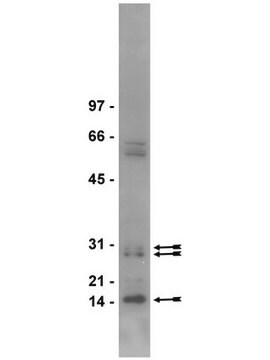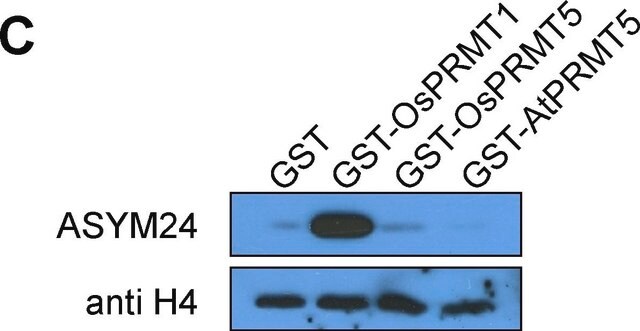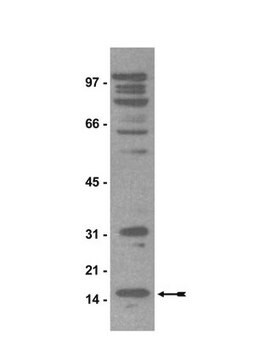09-814
Anti-dimethyl-Arginine Antibody, asymmetric (ASYM25)
serum, from rabbit
Synonyme(s) :
dimethyl-arginine, asymmetric
About This Item
Produits recommandés
Source biologique
rabbit
Niveau de qualité
Forme d'anticorps
serum
Type de produit anticorps
primary antibodies
Clone
polyclonal
Espèces réactives
mouse
Réactivité de l'espèce (prédite par homologie)
rat (based on 100% sequence homology), human (based on 100% sequence homology)
Technique(s)
western blot: suitable
Conditions d'expédition
wet ice
Modification post-traductionnelle de la cible
unmodified
Description générale
Spécificité
Immunogène
Application
Qualité
µ
Description de la cible
Remarque sur l'analyse
Not finding the right product?
Try our Outil de sélection de produits.
Code de la classe de stockage
10 - Combustible liquids
Classe de danger pour l'eau (WGK)
WGK 1
Certificats d'analyse (COA)
Recherchez un Certificats d'analyse (COA) en saisissant le numéro de lot du produit. Les numéros de lot figurent sur l'étiquette du produit après les mots "Lot" ou "Batch".
Déjà en possession de ce produit ?
Retrouvez la documentation relative aux produits que vous avez récemment achetés dans la Bibliothèque de documents.
Notre équipe de scientifiques dispose d'une expérience dans tous les secteurs de la recherche, notamment en sciences de la vie, science des matériaux, synthèse chimique, chromatographie, analyse et dans de nombreux autres domaines..
Contacter notre Service technique








